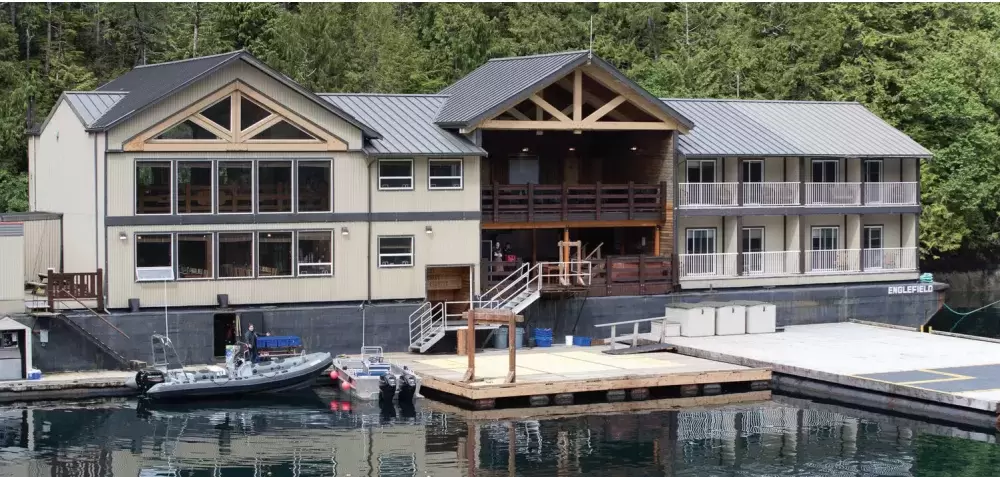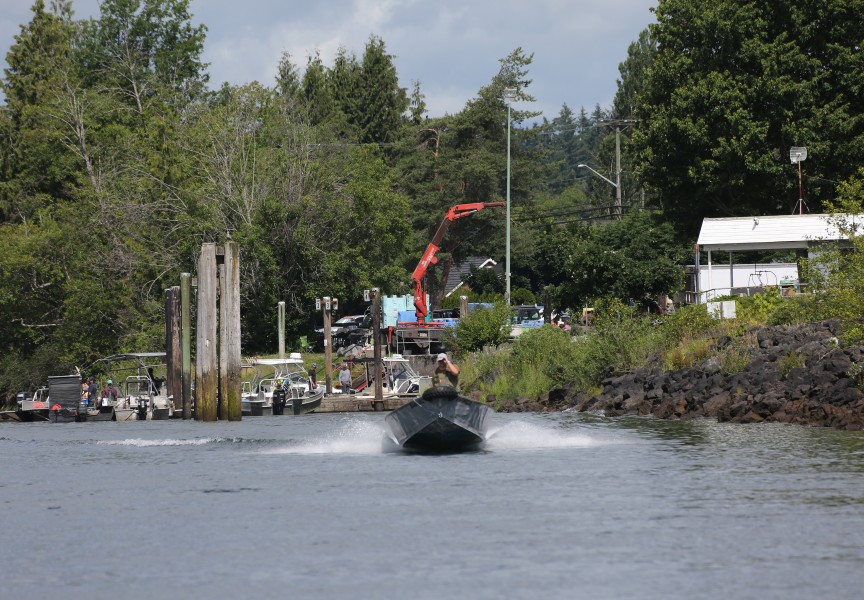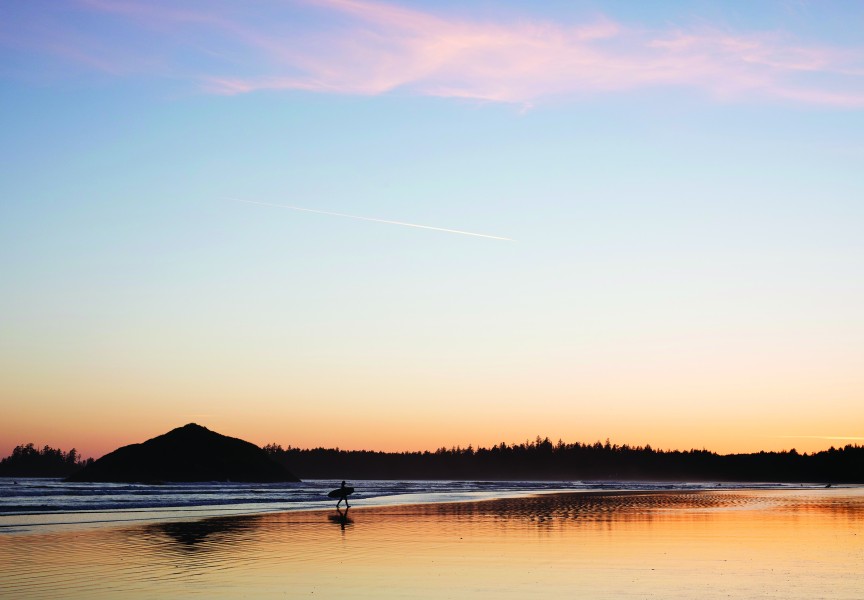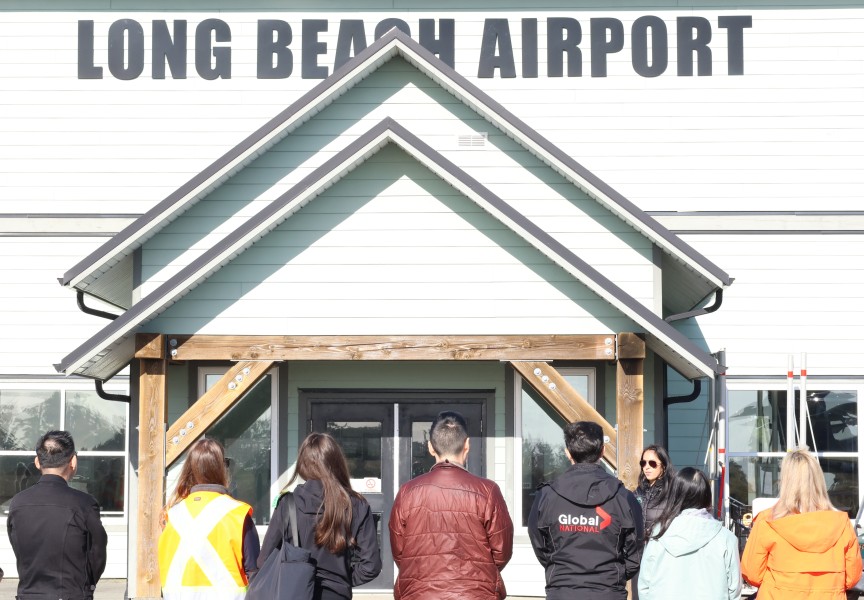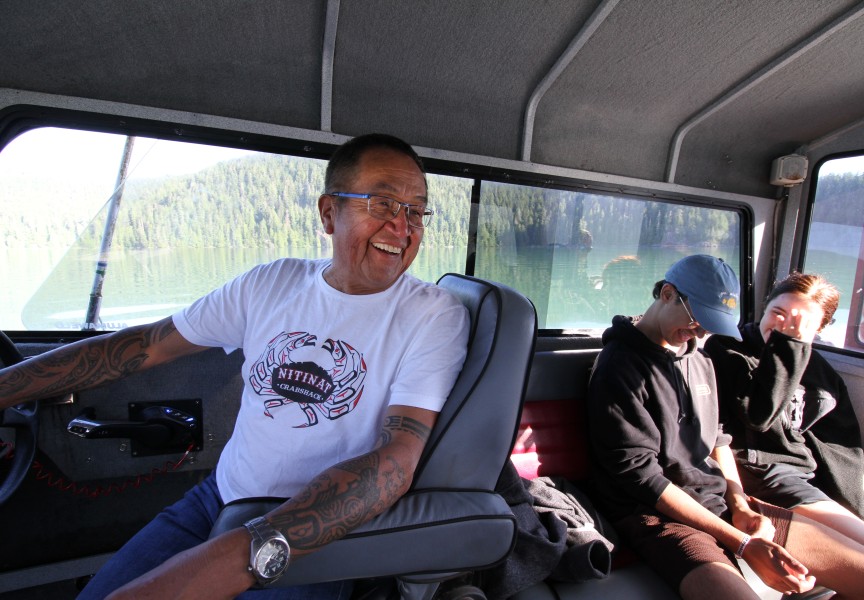After being closed for two years over the COVID-19 pandemic, the Ka:'yu:'k't'h'/Che:k'tles7et'h' First Nation’s resort is reopening this summer with a larger facility and future plans to become more than a fishing lodge.
Walter’s Cove Resort is expected to welcome its first guests of the year on June 23, in a new floating facility anchored one kilometre south the First Nation’s village of Houpsitas in Kyuquot Sound. Recently leased by Ka:'yu:'k't'h'/Che:k'tles7et'h' from Vancouver Island Forest and Marine, the Englefield Lodge is currently sitting under the Alex Fraser bridge in Vancouver, but by the end of the month is expected to begin its journey across the Salish Sea and up the west coast of Vancouver Island to its new home in Kyuquot Sound.
The resort’s new barge facility offers 15,000 square feet of accommodation, with 23 rooms, 50 beds, a dining room, lounge, kitchen and gym. The Englefield was most recently used as an accommodation barge for forestry workers operating in remote locations of the West Coast, but since it was built in 2000, it has mostly served as a fishing lodge. It was previously owned by Haida Enterprise Corporation, which operated the facility in Haida Gwaii until 2017.
The Englefield has more than double the capacity of the old Water’s Cove facility, a nine-room building on stilts that still sits on Walter’s Island. Structural problems forced the initial closure of the resort in early 2020, then the COVID-19 pandemic stretched the shutdown to two years. But with travel opening up in the province as most pandemic restrictions have been lifted, the larger facility brings big hopes for the First Nation to reclaim its stake in the tourism industry, said the resort’s general manager Terry Schultz.
“We’re excited to get back into the game,” he said. “It’s been a tough couple of years with COVID.”
For this season, less than half of the Englefield will be used, due to number of boats the resort has available for guests. But until the facility is expected to close on Sept. 4, 85 per cent of the rooms designated for used are already booked, putting the resort on target for over $1 million in proceeds.
“We’ve already hit our revenue target that we had for our budget for this year,” said Schultz.
Despite the two-year shutdown, all but five of the 18 staff are returning from when Walter’s Cove was last open, 11 of whom are Ka:'yu:'k't'h'/Che:k'tles7et'h' members. Although Walter’s Cove Resort serves primarily as a fishing lodge, with the new facility the First Nation hopes to bring more of an authentic cultural and environmental experience that could only be offered in Kyuquot Sound.
“Fishing will be one of many experiences in the Kyuquot Sound,” said Gary Wilson, chief executive and economic development officer with the KCFN Group of Businesses. “Whether it’s kayaking or hiking or just travelling the coast to see the history, mother nature and all the other parts of the area - rather than just going on the water and throwing a hook in ocean and hoping to catch a fish - there’s more to [Kyuquot] Sound and Che:k'tles7et'h' territory than fishing. We want to give the visitors a much broader experience.”
“We want concentrate on eco and cultural tourism, and just having fishing as one of the activities you can do while you’re there,” added Schultz. “With that we can expand our season. Right now our season is limited by when the fishing is at it’s best, because we’re operating strictly as a fishing lodge.”
Schultz estimates the resort’s guests are split evenly between Canadians and Americans. Approximately 70 per cent of the Canadian guests come from B.C., with the remainder usually from Alberta and Ontario, he said. Many visitors are flown in via Sea Air from Vancouver, and boats also pick up guests from Fair Harbour.
“We get corporate business of companies that want to reward employees or important clients,”’ said Schultz. “We also get families, we get groups of fishing buddies, we get some couples.”
“It’s an opportunity to be on the water, close to the elements,” said Wilson. “The challenge of catching the salmon or other fish in the territory and have that experience, it’s certainly a contrast going from a busy life to that lifestyle for a little while.”

